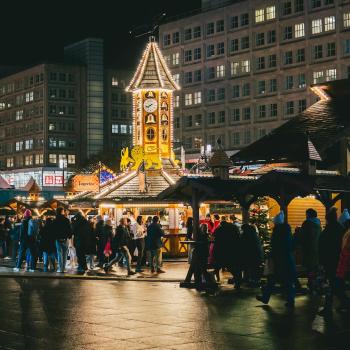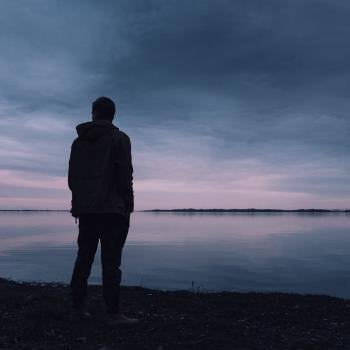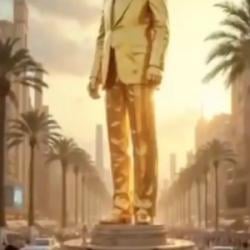Editors' Note: This article is part of the Patheos Public Square on Immigration and Refugees. Read other perspectives here.
It's precisely when people are desperate that they are most vulnerable to becoming the prey of human traffickers. This is why migrants and refugees are at exceptional risk; their legal status, losses, and living situations leave them particularly vulnerable to those who promise safe passage to hope and a better life. Human trafficking is the deplorable trifecta of modern-day slavery — indentured servitude, labor abuse, and sexual exploitation of adults, teens, and very small children, affecting 20 million people at any given time. According to the United National High Commissioner for Refugees, UNHCR, trafficking risks for refugees are increasing around the world.
Populations become especially vulnerable under particular conditions like conflict, poverty, lack of education, and gender inequality. But another very important way in which people become vulnerable is a factor rarely noticed, because it is hidden in plain sight.
Basic to all forms of life, living conditions are difficult-to-deadly when people do not have access to safe water. Accounting for some fifty different diseases, the lack of access to safe water and basic sanitation is a global pandemic that makes people sick, less productive, and chained to poverty when they can't work or afford medication. Just the cost of medicine for those living in extreme poverty can force parents into an impossible choice — send one child away to work in order to get money for the medicine to save another child's life. Would-be traffickers offer up-front payments in exchange for a child. When parents die in conflicts or from disease, orphaned children are all the more vulnerable to traffickers who promise compassion.
Children who don't have safe water are exposed to dozens of diseases, miss school, and suffer from under-nutrition when their bodies can't properly absorb nutrients due to water-borne diarrheal disease (the second most common cause of death in children under five). Stunting, the product of under-nutrition, can lead to lifelong cognitive and physical problems and virtually guarantees the cycle of poverty — and vulnerability to traffickers — will continue.
When women spend hours hauling dirty water every day for their families, that's time not spent caring for and educating themselves and their children, growing food, or creating small businesses. It insures gender inequality and poverty. And vulnerability.
This is where human traffickers thrive — promising safety and work abroad in factories and private homes. But those jobs turn out to be a modern-day hell. There are far too many stories. Here is just one that's been hard to shake: When Lang Long left Cambodia he had dreams of providing for his family. Instead, he was trafficked to Thailand and forced to work on a fishing vessel where he was beaten regularly with a metal pole, compelled to drink water from fish barrels, and given little rest. To make sure that he couldn't escape, when he wasn't working he was chained to an anchor post by a rusty metal collar around his neck. You can read more about Lang Long's story in the New York Times.
The illegal and unregulated fishing business has grown into a $20 billion a year industry. It's hidden off shore and notorious for enslaving crewmembers, most of whom are under seventeen years of age. These boys are forced to work eighteen- to twenty-hour days and force-fed amphetamines to help them work through the pain. Workers may fair little better in the legal and regulated agricultural industry. It's an industry that sucks up more water than any other, pollutes and drains water resources, while also taking advantage of poverty by exploiting and even enslaving millions of men, women, and children.
Human trafficking affects every country in the world, including the U.S. [Check out this informative visualization data by country and commodity.] If we are serious about combatting the growing catastrophe of human trafficking, we must be serious about ending that which creates refugees — and whether it's conflict, poverty, hunger, gender inequality, lack of education, it all also relates back to access to a foundational human need: water.
But what does all of this have to do with faith? To us it is very simple. Water is the single symbol shared by every world religion. Water cleanses, purifies, and sanctifies throughout our rituals and daily devotions. Water is named in the Bible 722 times. There may be plenty that folks don't agree about these days, including how to deal with the world's refugee crisis, but we can all agree on this: Every child deserves a glass of clean water.
Don't they?
Note: To learn more about how you can help: Faith for International Assistance and Stop the Traffik. The global water and sanitation crisis is a solvable problem. For information on how to get involved: Faiths for Safe Water.
8/10/2016 4:00:00 AM




